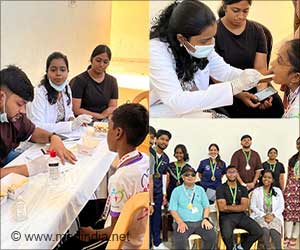Blood plasma, when turned into a gel-like substance, can help neutralize organ rejection in kidney transplant. British doctors have successfully used the cryofiltration system to transplant a kidney to a woman from her sister, overcoming the problem of incompatible tissues.
Organ rejection happens when the body recognises the new organ as foreign, and the immune system reacts against it. The risk can be reduced if the donor organ comes from another family member, and patients will often take drugs for the rest of their lives to 'damp down' their immune response.Maxine, 41, from Wolverhampton, who had been in kidney failure for 15 years, was found to have immune system antibodies against the tissue types of all her family members, which seemed to rule them out as "living donors". And the waiting list for organ transplant is pretty long in the UK. It was in such circumstances her sister's organ was transplanted to Maxine in the University Hospital in Coventry, using the cryofiltration technique. It is a procedure in which the blood plasma is circulated through a machine which heavily chills it, turning proteins and antibodies into a gel-like substance which can then be easily filtered out, before the plasma is re-warmed and returned to the patient.
Dr Rob Higgins, a kidney specialist at University Hospitals Coventry and Warwickshire NHS Trust said: "Maxine would have gone blind within two years because of her low blood pressure, if she had not received a new kidney.
"This is another innovative measure we have implemented at the trust which opens the doors of donation for more kidney patients awaiting transplants."
Both Maxine, and her sister Michelle, who was the closest match available in the family, underwent the procedure five times before the transplant took place.
The operation, carried out in November, has already transformed Maxine's life.
Advertisement
"Rob told me I was the first kidney patient in the world to try this technique which I thought was really exciting - it hasn't sunk in yet."
Advertisement
“While the technique may apply to a limited number of patients, to the individual, if it makes the difference between no transplant and a transplant, then it’s hugely important,” Mr. Rudge said.
Source-Medindia
GPL





